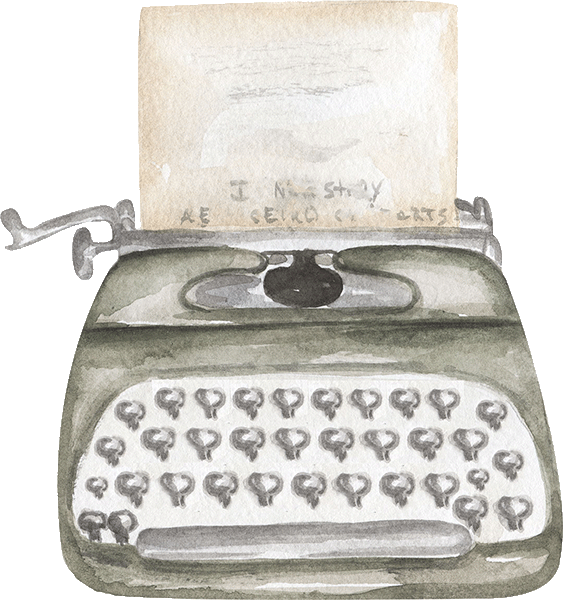Recently, I’ve seen writers talking about how writing advice, story craft, and other tips and tricks for writing a better novel are useless.
In their way of seeing it, writing advice tends to lead to formulaic stories, sub-parr novels, and writers not seeking a certain “it” factor. Writers don’t need advice — they need to figure things out on their own.
But this “I’m the all-powerful artist” mindset isn’t healthy. In this post, I’ll be discussing why.
The basic question comes down to this …
If you take writing advice, and try to follow all the writing advice you receive, are you ruining your creative experience — damaging the “it” factor writers need to have?
Or rather:
Shouldn’t writers just naturally be able to write the perfect novel?
The simple answer is … no. No to all of that! You need writing advice, you are not ruining your creative experience, and the “it” factor people talk about is much smaller than most people believe.
Writing has some aspects of art to it, and a lot of people do have a certain amount of talent. But in general, it’s a learned skill. There are so many aspects of writing that you have to study!
And yes, you should take advice. You should read books on writing. You should listen to the experts and take criticism.
Take it with a grain of salt — if John Johnson says you should only write zombie thrillers, you might want to think it over before diving on in — but do take it.
Why can’t you just do it your way?
There is a craft to storytelling, and no, it’s not subjective.
Certain structures, certain ways of crafting characters, certain techniques, grammar, spelling … they all matter. They all will help you write better stories.
Much as I, too, would like to write and then ignore anyone who says what I put out isn’t raw genius, it’s not realistic. Though not everyone will like your book, you need to work toward improving so some people will like it.
And even if you choose to keep your novels to yourself, you still want to do the best at your endeavor.
So learning the craft is important — even necessary!
But won’t your book be like everyone else’s?
No, it won’t. Because most people don’t dedicate themselves to writing great books and most people don’t study the craft of writing to understand what makes a great book.
Basic things like story structure and great characters will make your book more unique rather than less.
Following market trends and chasing after the most recent popular trope is one thing … but refusing to learn the basics of good writing and storytelling will have you running around like a chicken with your head cut off.
The more effort you put into studying the craft of writing a good book, the better book you will write. That’s the simple truth of it.
Hard work means more than any “it” factor.
No matter how talented you are, if you don’t study writing, you won’t improve.
No matter how talented you are, if you don’t write, you won’t have anything to improve.
Both of these are important, and they work hand in hand to create an awesome novel that will be a bestseller, will change people, will be something you can be proud of.
It’s important to make something of quality, and if you don’t learn how, you’re sunk!
Consider your craftsmanship.
It makes me cringe inside when writers treat writing like something you just need to do until it’s perfect without actually studying the craft.
You wouldn’t say “to be a doctor, you just have to operate on people until you get it” or “you should naturally know how to do brain surgery.”
Even Michaelangelo wasn’t born sculpting. It was a skill he learned from hours of practice and study.
All good writers, all great writers, learn the writing craft. You have to know the rules to break them.
When I see writers say writing advice is useless, I can’t help but think they’re stuck in their own ego and their own immaturity.
Well, I don’t want you all to be stuck there.
I want you to become better. To study the craft. I want you to learn what makes a good book — and no, it’s not an “it” factor — and what makes a book sell.
So I encourage you today to think about really diving into writing craft. How can you improve your novel? Pick one thing, perhaps, and pursue it.
Don’t overwhelm yourself — just a little at a time will make all the difference. But be sure to breathe in all the great advice out there!
You may not have started out as the next Jane Austen …
But you could be! Who knows? If you’re willing to put the effort out, you have a great shot.
Writing isn’t some elusive unicorn that only a select, privileged few can snare. Nor is excellent writing a pot of gold at the end of a rainbow!
Writing is hard work. It’s studying the craft. Writing is grinding your natural talents down to something beautiful — finding the gold hidden amongst the clay.
I believe you can do it. But will you?
TTFN!
~Kellyn Roth~
p.s.
What do you think of them *ahem* advice? Do you agree that there’s a lot of studying to writing a good novel? What are your thoughts on the “it” factor of writing?
Also, HOW IS NANOWRIMO DOING? Mine was doing horrible until I switched projects, and now it’s coming along. (Current project is the one at the top of this page.)



6 Responses
Great article!
Awww, thank you! 🙂
I’m sorta in the middle. I do take writing advice seriously (I’m nowhere near an expert, lol!) But there are a few things I ignore, because of personal preference in style, convictions against certain topics, etc. Some things I take as suggestions, others as “rules”. But it’s definitely not wise to through advice out the window! Never take the know it all attitude towards advice. Chances are the one giving it knows a lot more than you do XD
Right, that’s how you should view it! Though of course it’s important to be sure you are right in the first place, once you know something, you don’t want to throw it out the window. (I’ve had people tell me you can only write in first person, you can only write in one POV, etc., and I was like, “… no?”)
I know right? I was told to be a real writer I should write x amount of words daily and I’m thinking…1) I’m already multi-published and getting an amazing response (still learning, but I think I am a writer, lol!) 2) I’m in the ministry and sometimes, I can’t write that much in a day and 3) everyone has a writing routine that fits them differently. Everyone has personal goals. Don’t try to force people into a 1 size fits all mold, lol!
Yup, there’s really no mold for writers – even for successful molds. There may be some things that work better than others, but they’re not set in stone!